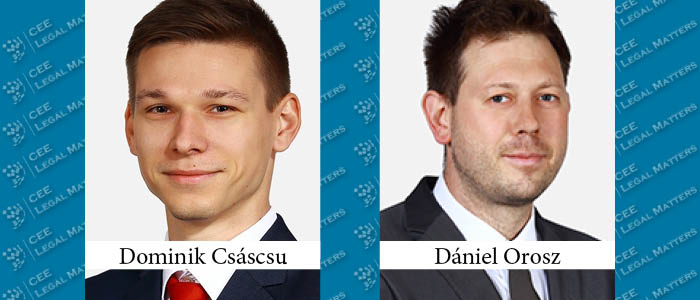Since 2010, the regulations and practices relative to the ESG requirements in the EU have been rapidly evolving. The EU has implemented significant rules by adopting the Taxonomy Regulation, the Non-Financial Disclosure Directive (NFRD), the Sustainable Finance Disclosure Regulation (SFDR) and the Corporate Sustainability Reporting Directive (CSRD). These regulate the disclosure obligations of certain companies and private equity funds in connection with their sustainability obligations and their commitment to respecting human rights.
Environmental, social and governance (ESG) within the EU and Hungary
Since 2010, the regulations and practices relative to the ESG requirements in the EU have been rapidly evolving. The EU has implemented significant rules by adopting the Taxonomy Regulation, the Non-Financial Disclosure Directive (NFRD), the Sustainable Finance Disclosure Regulation (SFDR) and the Corporate Sustainability Reporting Directive (CSRD). These regulate the disclosure obligations of certain companies and private equity funds in connection with their sustainability obligations and their commitment to respecting human rights.
The ESG requirements not only determine a company's disclosure obligations, but they also influence its value. Many market players, so-called ESG qualifiers, such as Sustainalytics or Refinitiv, also establish their own factors and requirements by which they evaluate and rate companies from an ESG perspective. Having a well-governed company complying with ESG requirements also adds value from a financing perspective. Banks, public authorities, states or international organizations may provide more beneficial loans or other subsidies for companies operating in an ESG-friendly way.
Sustainable real estate funds are the beneficiaries in Hungary
Since EU legislation is constantly developing and determining the direction of industries, ESG requirements are also becoming more important in Hungary.
One of the latest developments is the Baross Gabor Equity Program announced by Nemzeti Tőkeholding Zrt., by which the Hungarian Development Bank will provide significant funds to real estate funds to invest in the real estate market ("RE Program"). The applicant real estate funds may use the money to invest in sustainable real estate projects.
The investments made by real estate funds must have an energy qualification of "Very good" in the BREEAM qualification system or a qualification of "Gold" in the LEED qualification system for commercial real estates. The investments for residential real estates need to have at least a BB class energy classification. This will require real estate funds to invest in real estate that has state of the art technology, uses renewable energy sources and does not exceed the annual energy consumption of 100kWh/sqm. These investments may also be considered an environmentally sustainable economic activity under the EU Taxonomy Regulation, as they contribute to the improvement of energy efficiency.
Real estate funds may individually receive a minimum amount of HUF 4.5 billion and a maximum amount of HUF 30 billion from the Hungarian Development Bank. By implementing the RE Program, the Hungarian Development Bank will provide HUF 150 billion to the real estate sector. The applicants must submit their applications to Nemzeti Tőkeholding Zrt. by 31 March 2023.
The introduction of the subsidy scheme will surely boost demand in the real estate market by providing an additional financial source to real estate funds. However, the new subsidy scheme will have a positive impact only on projects that can fulfill the ESG requirements in the field of sustainability and environment.
Energy projects in target
The EU legislation pushes enterprises to evaluate and consider the ESG aspects of their daily activities. The number of member states introducing local legislation for the same purpose has been growing gradually.
Namely, one of the latest domestic developments in Germany is the adoption of the German Supply Chain Due Diligence Act. It introduces material obligations applicable to significant German undertakings in relation to the ESG due diligence of their subsidiaries and suppliers for the purpose of identifying and eliminating their subsidiaries' and suppliers' environmental risks and activities violating human rights.
In Hungary, one of the government's first steps is to announce the RE Program to encourage real estate funds to invest in the real estate market in a sustainable way and thereby support the energy transition.
Up to this point, real estate funds have only been allowed to invest in real estate-related assets. To achieve the sustainability goals in the energy policy field, it is necessary to extend the scope of the real estate fund's investment targets to energy projects and companies licensed for renewable energy production and energy storage projects, which could boost the development of energy transition further.
By Daniel Orosz, Senior Associate and Dominik Csáscsu, Junior Associate, Baker McKenzie




